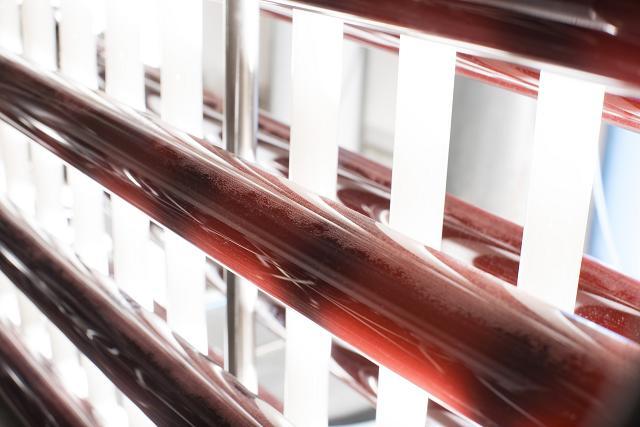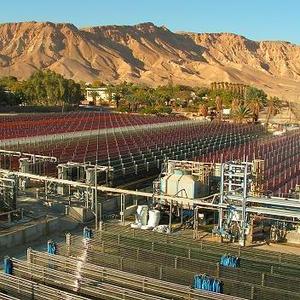Schott, Algatech sign new R&D agreement following 1-year study



Photo: Schott AG
September 24, 2014
BY Schott AG
Schott and Algatechnologies (Algatech), a biotechnology company specializing in algae production, have signed an R&D agreement to strengthen their partnership following a successful one-year study of new glass tubes at Algatech’s algae production facility. Schott’s thin-walled Duran glass tubes significantly improved cultivation efficiency in the yields of Algatech’s AstaPure natural astaxanthin. Nikolaos Katsikis of Schott and Raz Rashelbach of Algatech will present the study’s full results at the Algae Biomass Summit, Sept. 29-Oct. 2 in San Diego.
Algatech sought to optimize cultivation of AstaPure, a premium natural antioxidant known as astaxanthin, as part of its goal to double production capacity. Schott partnered with Algatech in 2013 to produce 16 kilometers—nearly 10 miles—of thin-walled Duran glass tubes for testing in Algatech’s photobioreactor (PBR) production systems at its array in Israel.
Advertisement
Schott reduced the wall thickness of the special Duran tubes while maintaining their strength and stability. The thinner walls facilitate higher volume and increased sun exposure of the microalgae. The use of Duran tubes resulted in an increase in algae production efficiency and higher yields of AstaPure astaxanthin.
“From energy to medicine, cosmetics to nutraceuticals, many different industries rely on algae,” said Rashelbach, R&D manager at Algatech. “The success of the thin-walled Duran tubing has helped increase the AstaPure production efficiency on a small scale that can now be replicated on a much larger scale.”
“Further testing and development of new products in partnership with Algatech will allow us to continue finding new ways and methods to improve algae production,” added Katsikis, director, business development at Schott Tubing.
Advertisement
Schott and Algatech’s R&D agreement will expand their joint cooperation. A dedicated section of Algatech’s factory in the Arava Desert will serve as a beta site for advanced glass components developed by Schott for implementation in PBRs.
“The partnership with Schott is an additional step in achieving our objectives to optimize production efficiency and widen our capabilities in the development of new microalgae-based products,” said Hagai Stadler, CEO of Algatech. “Algatech's extensive know-how in algae cultivation technologies, together with Schott’s versatile glass manufacturing capabilities and knowledge, will allow both companies to develop advanced solutions for the algae industry.”
Related Stories
The USDA significantly increased its estimate for 2025-’26 soybean oil use in biofuel production in its latest World Agricultural Supply and Demand Estimates report, released July 11. The outlook for soybean production was revised down.
U.S. fuel ethanol capacity fell slightly in April, while biodiesel and renewable diesel capacity held steady, according to data released by the U.S. EIA on June 30. Feedstock consumption was down when compared to the previous month.
The U.S. EPA on July 8 hosted virtual public hearing to gather input on the agency’s recently released proposed rule to set 2026 and 2027 RFS RVOs. Members of the biofuel industry were among those to offer testimony during the event.
The USDA’s Risk Management Agency is implementing multiple changes to the Camelina pilot insurance program for the 2026 and succeeding crop years. The changes will expand coverage options and provide greater flexibility for producers.
The USDA’s National Agricultural Statistics Service on June 30 released its annual Acreage report, estimating that 83.4 million acres of soybeans have been planted in the U.S. this year, down 4% when compared to 2024.
Upcoming Events










